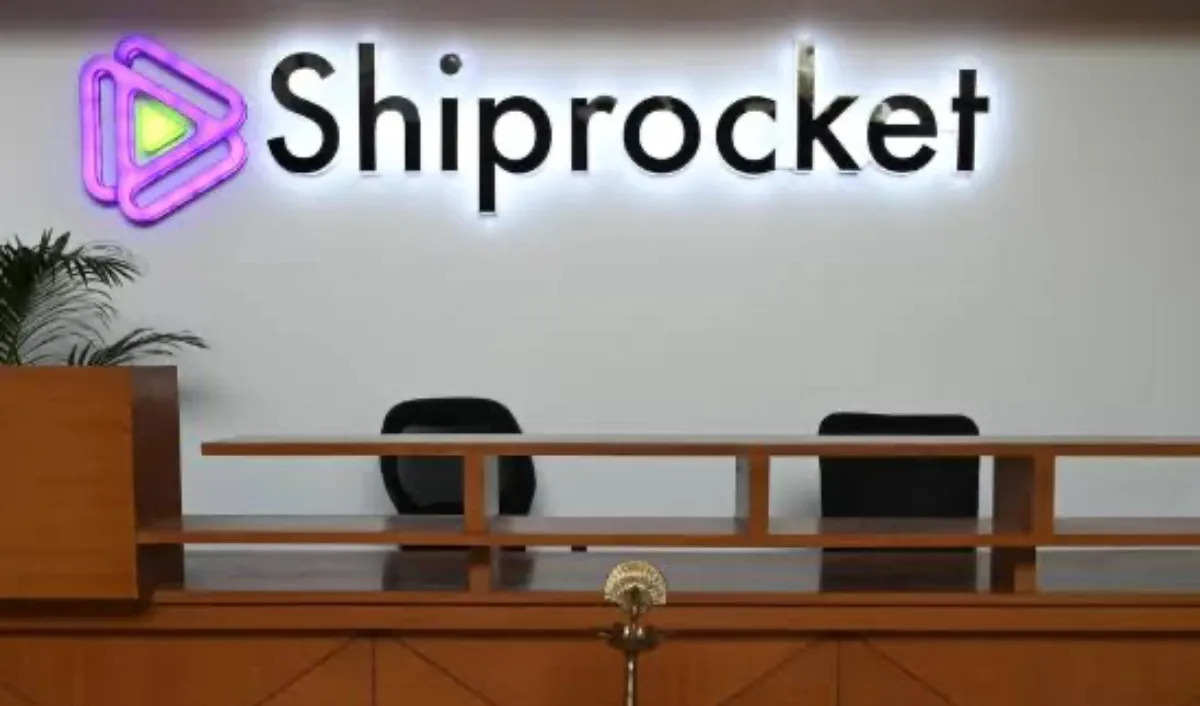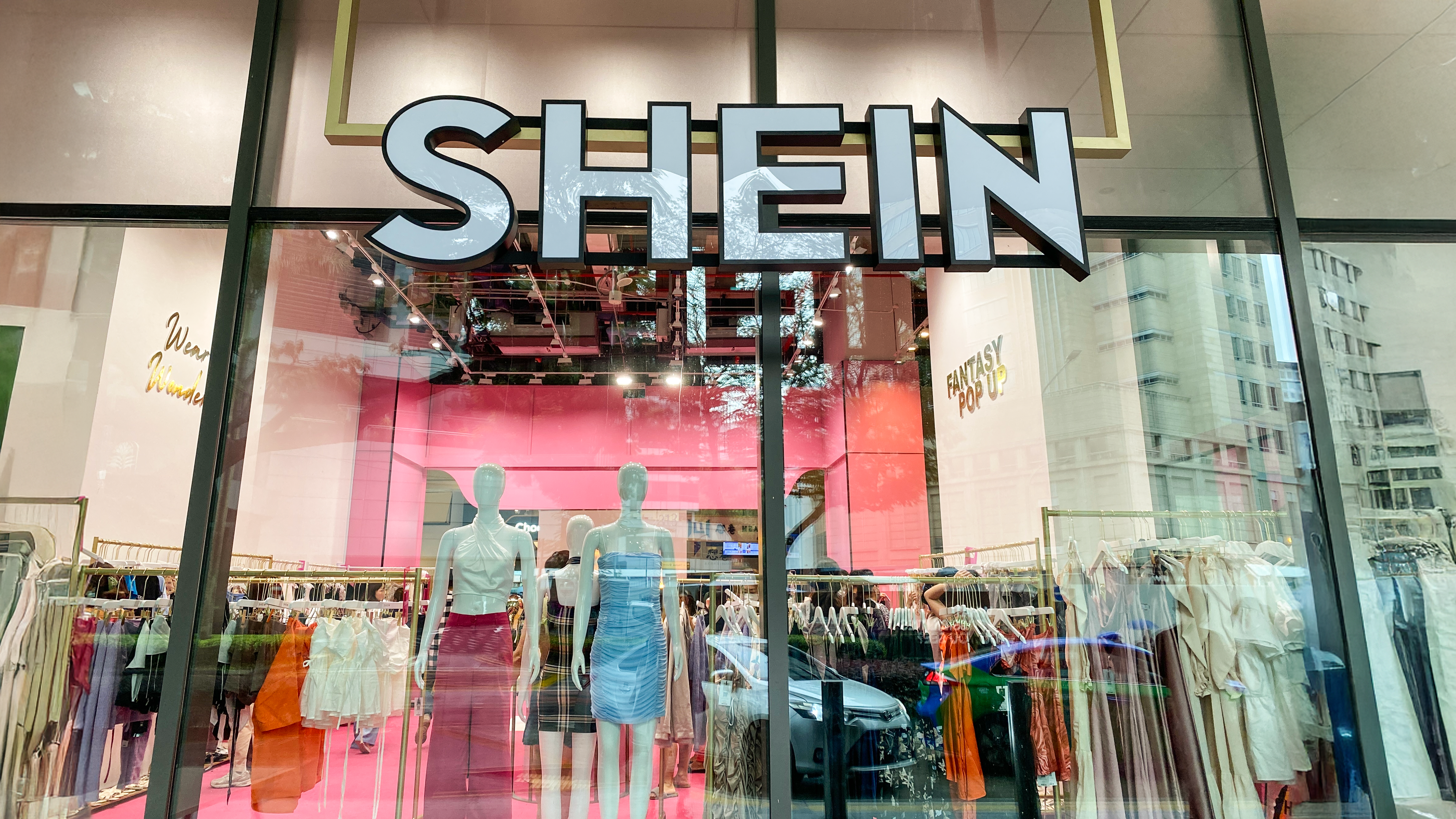Reading view
Shopify says AI traffic is up 7x since January, AI-driven orders are up 11x
Shopify president: We’re laying the rails for agentic commerce
The post Shopify president: We’re laying the rails for agentic commerce appeared first on StartupHub.ai.
“We’re laying the rails for agentic commerce,” stated Harley Finkelstein, president of Shopify, during a recent appearance on CNBC’s ‘Squawk on the Street.’ Finkelstein spoke with Jim Cramer about the company’s latest quarterly performance, its strategic integration of artificial intelligence, and the broader landscape of e-commerce. Shopify’s recent earnings report showcased robust growth, with revenue […]
The post Shopify president: We’re laying the rails for agentic commerce appeared first on StartupHub.ai.
Fit Collective raises £3M to advance its AI sizing platform
The post Fit Collective raises £3M to advance its AI sizing platform appeared first on StartupHub.ai.
Fashion technology company Fit Collective raised £3M to scale its AI platform that helps brands improve garment sizing before production to reduce returns and waste.
The post Fit Collective raises £3M to advance its AI sizing platform appeared first on StartupHub.ai.
In The Space Of Months, AI Funding Boom Adds More Than $500B In Value To Unicorn Board And Reshuffles Top 20
The Crunchbase Unicorn Board crested $6 trillion in total value for the first time in August 2025. It only took around 18 months to get there after hitting the $5 trillion mark.
Within a few months of the August milestone, the board added another half-trillion-plus in value, an unprecedented increase, even when compared to the peak market of 2021 and early 2022. The rapid acceleration in unicorn values highlights the remarkable pace at which the AI sector is driving up revenue — and, in turn, valuations.
Much of the valuation surge on the board — which lists private companies valued at $1 billion or more — was driven by frontier model companies adding hundreds of billions in value, an analysis of Crunchbase data shows.
Notably, there was also an uptick in companies that reached decacorn valuations for the first time and notched significant jumps in value over their previous marks.
Reshuffling of the top 20
These valuation hikes were most noticeable in the 20 most highly valued companies on the Unicorn Board, which has undergone a major reshuffling at the top.
OpenAI added $200 billion in the space of six months in early October after adding $143 billion in the prior six months. With a $500 billion valuation, the San Francisco-based startup is now the most highly valued company on the board, after it leapfrogged SpaceX for the No. 1 spot.
SpaceX itself added $50 billion to its value in September, taking the Hawthorne, California-based company’s valuation to $400 billion.
Anthropic, the fourth most highly valued unicorn after SpaceX and ByteDance, added $121.5 billion in value in the space of six months, valuing the San Francisco-based company at $183 billion as of September.
Meanwhile, Databricks, another San Francisco-based company, added $38 billion in value within nine months, placing the company sixth on the board with a valuation of $100 billion. That ranks it just below China’s Ant Group, which was valued at $150 billion in 2018.
Sydney-based design software maker Canva added $10 billion in value in August in an employee share sale led by Fidelity that valued the company at $42 billion.
New decacorns
Eleven companies have already joined the decacorn club in H2 so far — outpacing the half-year counts we’ve seen since H2 2022.
Of the 11 new decacorns, the company that increased its value by the largest percentage was humanoid robotics company Figure. The San Jose, California-based startup catapulted into the top 20 with a $1 billion funding at a post money valuation of $39 billion. That was up from its March 2024 valuation of $2.7 billion — marking a more than 1,300% increase in 18 months. The funding was led by New York-based Parkway Venture Capital, which also led Figure’s Series A funding in 2023. The company is building out humanoid robots for home and commercial work, and is investing in manufacturing and training its own AI model.
Another unicorn that posted a big valuation surge is cryptocurrency exchange Kraken, which raised $500 million at a $15 billion valuation in September. The San Francisco-based company was last valued in 2019 at $4 billion.
Many of these newly minted decacorns’ ratcheted up by more than $5 billion in less than a year. Along with Figure and Kraken, the following are other new decacorns that have emerged just since the start of the second half of 2025:
- France-based frontier model company Mistral was valued at $13.2 billion in a funding led by Netherlands-based chipmaker ASML.
- San Francisco-based livestream shopping platform Whatnot raised $225 million at $11.5 billion value led by CapitalG and DST Global. Whatnot was last valued at $5 billion in January.
- Ring health tracker Oura based in Finland raised $900 million at an $11 billion valuation led by Fidelity.
- New York-based Bilt Rewards, a commerce network for renters, raised $250 million at a $10.8 billion value led by General Catalyst and GID.
- Colorado-based quantum computing company Quantinuum, part of Honeywell, raised $600 million at a $10.6 billion valuation led by NVentures.
- Palo Alto AI lab Cognition, focused on reasoning and code, raised $400 million at a $10.2 billion value led by Founders Fund. Cognition, last valued at $4 billion in March, acquired Windsurf in July.
- San Francisco-based Mercor connects human expertise for AI lab training. Mercor raised $350 million at a $10 billion valuation led by Felicis 1. Felicis also led its prior funding in February at a $2 billion valuation.
- Colorado-based Crusoe Energy Systems, which is building AI datacenters, raised $1.4 billion at a $10 billion valuation led by Mubadala Capital and Valor Equity Partners.
- San Francisco-based conversational customer experience AI startup Sierra raised $350 million at a $10 billion valuation led by Greenoaks.
In Q2, five companies joined the $10 billion-plus club. They include Applied Intuition, Helsing, Perplexity, Thinking Machines Lab and Safe Super Intelligence. (Perplexity has since raised multiple rounds to reach a value of $20 billion.)
Markets heat up
While the frontier AI labs are seeing the largest valuation increases, there are a greater number of companies this year joining the decacorn club, second only to counts seen in 2021. We find 82 private companies in the decacorn club as of October 2025 with more than a third that raised funding in 2025 to date. This pick-up in higher counts of new decacorns could be an indicator that the IPO markets warm up in 2026.
Related reading:
- The Crunchbase Unicorn Board
- Crunchbase’s Global Unicorn List Tops $6T In Value In August For The First Time Despite Slowdown
- OpenAI’s $6.6B Secondary Share Sale Gives It Record $500B Startup Valuation, Topping SpaceX
- Unicorn Valuations Crest Higher
- Whatnot Lands $225M Series F, More Than Doubles Valuation to $11.5B Since January
- AI Talent Wars Heat Up As Cognition Scoops Up Windsurf After OpenAI Deal Falls Apart
Illustration: Dom Guzman

Temasek-backed logistics firm Shiprocket gets SEBI nod for IPO

Zepto drops delivery, handling fees after $450m funding

France reports Shein for selling ‘childlike sex dolls’ online

Alibaba to invest $281m to expand Taobao partner stores in China

The Week’s 10 Biggest Funding Rounds: AI, Fintech And E-Commerce In The Lead
Want to keep track of the largest startup funding deals in 2025 with our curated list of $100 million-plus venture deals to U.S.-based companies? Check out The Crunchbase Megadeals Board.
This is a weekly feature that runs down the week’s top 10 announced funding rounds in the U.S. Check out last week’s biggest funding rounds here.
The week’s largest funding rounds confirmed that we’re still very much in the AI era. This included the biggest deal, a $350 million Series C for AI hiring startup Mercor, along with good-sized financings for legal tech unicorn Harvey, shopping platform Whatnot, and email security provider Sublime Security.
1. Mercor, $350M, AI hiring: San Francisco-based Mercor, a provider of AI-enabled tools for hiring, secured $350 million in Series C funding at a $10 billion valuation. Felicis 1 led the financing, which included participation by Robinhood Ventures, General Catalyst and Benchmark.
2. (tied) SavvyMoney, $225M, fintech: SavvyMoney, which offers tools for financial services providers to embed features like credit scores and personalized offers into their consumer offerings, announced a $225 million investment co-led by PSG Equity and Canapi Ventures. Founded in 2009, the Dublin, California, company currently works with more than 1,500 financial institution customers.
2. (tied) Whatnot, $225M, e-commerce: Whatnot, a live shopping platform and marketplace, has closed a $225 million Series F round, more than doubling its valuation to $11.5 billion in less than 10 months. DST Global and CapitalG co-led the financing, which brings the Los Angeles-based company’s total raised to about $968 million since its 2019 inception.
4. (tied) Sublime Security, $150M, cybersecurity: Sublime Security, a developer of agentic AI tools for email security, raised $150 million in a Series C round led by Georgian. The financing brings total funding to date for the 6-year-old Washington, D.C.-based company to around $240 million, per Crunchbase data.
4. (tied) Harvey, $150M, legal tech: Harvey, developer of an AI-enabled platform for legal professionals, closed on a fresh $150 million, bringing total reported funding to date to $1 billion. Andreessen Horowitz led the latest round, which reportedly set an $8 billion valuation for the 3-year-old, San Francisco-based company.
6. (tied) Human Interest, $100M, finance: Human Interest, a San Francisco-based startup that helps small businesses offer 401(k) plans to their employees, raised more than $100 million at a $3 billion valuation, Axios reports. That valuation is up from the $1.3 billion the company was last valued at in 2024. Previous investors Baillie Gifford, BlackRock, Marshall Wace, Morgan Stanley and TPG again backed the company.
6. (tied) Substrate, $100M, semiconductors: Substrate, a San Francisco-based startup seeking to build semiconductor factories with new laser-based technology, raised $100 million from Founders Fund, General Catalyst, IQT and others.
8. Zag Bio, $80M, biotech: Cambridge, Massachusetts-based Zag Bio, a developer of thymus-targeted medicines, announced its public launch with $80 million in financing, including a recently closed Series A round. Polaris Partners founded and incubated the startup and co-led the Series A financing with the JDRF T1D Fund.
9. ConductorOne, $79M, identity security: ConductorOne, an identity security startup building an AI platform geared for human, non-human and AI identities, landed $79 million in a Series B financing led by Greycroft. The 4-year-old Portland, Oregon-based company says it saw 400% revenue growth last year.
10. Blueprint, $60M, personal care: Blueprint, a Los Angeles-based brand that markets supplements, skin and hair care products, and foods geared to promote well-being and longevity, raised $60 million from a long list of venture and celebrity investors including Paris Hilton, Cameron Winklevoss, Tyler Winklevoss and Logan Paul.
Methodology
We tracked the largest announced rounds in the Crunchbase database that were raised by U.S.-based companies for the period of Oct. 25-31. Although most announced rounds are represented in the database, there could be a small time lag as some rounds are reported late in the week.
Illustration: Dom Guzman

Regulation As Alpha: Why The Smartest Startups Now Build Legal Strategy Into Their DNA
Every founder knows the thrill of the moment: the first term sheet lands, the product is live, the market is opening up. But in 2025, there’s a new line in the sand: Did you clear the regulatory path before you scaled?
Today, it’s not enough to disrupt the market — you have to anticipate the rule-set that will govern it.
Investors are shifting gears. After a decade of “move fast and break things,” they’re asking: Who built the compliance engine before the crash? Because the truth is, regulation has become a form of alpha — a competitive advantage for startups that think of law not as a hurdle, but as a moat.
The new era of smart compliance
The startup landscape has changed. High-profile failures — from crypto exchanges to wild valuations in fintech and AI — taught us that the regulatory cost of growth can be massive. Today’s investors and founders alike expect legal strategy from day one, not as an afterthought.
Consider the RegTech market: One recent estimate projects it will swell to about $70.64 billion by 2030, growing at a compound annual rate of roughly 23%. Another forecast predicts growth to $70.8 billion by 2033. The message: Companies are no longer asking if they need compliance automation and legal-engineering infrastructure. They’re asking when they can monetize it.
So when a startup designs its product around KYC, AML, data-protection or licensing from the outset, it’s not just avoiding risk — it’s building a moat others will struggle to cross. For founders, regulation isn’t just the cost of entry anymore — it’s the cost of exit-edge.
When the law becomes a moat
There are former unicorns, and there are regulation-ready unicorns. The difference hinges on when they built their compliance architecture, hired legal engineers and treated regulation as product.
Take payment infrastructure: Stripe built payment-security and licensing into its model early, as Stripe’s PCI Level 1 certification and multijurisdiction licenses (U.S. money-transmitter, EU/UK e-money) enabled it to integrate cleanly with Apple Pay, power Shopify’s native payments, and — per a 2023 announcement — expand its role processing payments for Amazon.
Or look at crypto: Coinbase built a licensure footprint early, publishing its U.S. money-transmitter licenses and securing New York’s BitLicense in 2017. Its 2021 SEC S-1 repeatedly frames regulatory compliance and licensing as fundamental to the business.
In insurtech, from the outset, Lemonade hired senior insurance veterans (e.g., former AIG executive Ty Sagalow) and, per its S-1 and subsequent filings, expanded licensure across the U.S., operationalizing the 50-state regulatory landscape rather than trying to route around it.
These examples show a pattern: When compliance is built in from the start, the cost of scaling drops and competitors face much higher entry bars. Regulation becomes a moat — not a burden.
The rise of ‘legal engineering’
Welcome to the era of the legal engineer. The traditional model (sign contract, then lawyer reads, then flagged risk) is being replaced by code, automation and internal teams who speak both product and law.
Startups such as Carta built cap-table software that includes “built-in tools and support to help with compliance year-round,” allowing it to embed governance and securities-law readiness into the product nature of equity management.
Plaid has publicly positioned itself for evolving “data use, access, and consumer permission” rules (e.g., Section 1033) by building features such as data transparency messaging and consent-capture into its API stack — indicating a clear regulatory-first posture in its product roadmap.
And what’s happening in AI? Founders are hiring general counsels on day one to forecast imminent regimes — privacy law (GDPR, CCPA), AI transparency bills, emerging algorithms-as-infrastructure regulation.
The startup battle isn’t simply product vs. product anymore — it’s regulatory architecture vs. regulatory architecture.
Reports back this up: One credible industry estimate shows the global compliance, governance and risk market is already around $80 billion and projected to reach $120 billion in the next five years. In short: Startups that solve compliance at scale are building infrastructure for everyone else to rent. That’s platform-level potential.
Investors are taking note
Regulation-ready startups aren’t just surviving — they’re attracting smarter capital. Venture funds now assess regulatory maturity, legal runway and governance readiness early on. A startup that can show it isn’t “waiting to deal with compliance” but designed it, has a valuation edge.
Crunchbase data shows global startup funding reached $91 billion in Q2 2025, up 11% year over year. While not all of that is focused on law or compliance, the trend signals that smart investors are buried deeper in risk assessment and governance. Legal tech funding is accelerating, too: the sector recently topped $2.4 billion in venture funding this year, an all-time high.
Funds are no longer only assessing TAM or go-to-market speed; they’re asking: “What’s the regulatory runway? Who owns risk? Who built the compliance pipeline?” Because in sectors like fintech, climate tech, health tech and AI, the fastest growth path is often the one that avoids the enforcement arm.
The future: law as competitive advantage
Let’s zoom out for a moment. We’re moving into a world where regulation isn’t a ceiling — it’s scaffolding. It defines markets, enables scaling and filters winners from pretenders. Founders who see law as a source of architecture, not as chewing-gum-on-the-shoe, will be the ones writing the playbook.
Think about AI: Startups that design for regulatory change (data-provenance, audit trails, rights management) are already positioning for the future.
Think about climate tech: Companies that can navigate evolving carbon-credit regimes or ESG disclosure laws are building invisible advantages.
Think about fintech: Those that mastered licensing, KYC/AML, consumer-data flows early are the backbone of infrastructure.
The next wave of unicorns won’t just have better tech — they’ll have truly infinitely better legal DNA. They won’t just disrupt a market; they’ll help write the rules of the market before they scale.
Because in this new era, regulation isn’t a deadweight — it’s a launchpad.
Aron Solomon is the chief strategy officer for Amplify. He holds a law degree and has taught entrepreneurship at McGill University and the University of Pennsylvania, and was elected to Fastcase 50, recognizing the top 50 legal innovators in the world. His writing has been featured in Newsweek, The Hill, Fast Company, Fortune, Forbes, CBS News, CNBC, USA Today and many other publications. He was nominated for a Pulitzer Prize for his op-ed in The Independent exposing the NFL’s “race-norming” policies.
Related Crunchbase query:
Related reading:
Illustration: Dom Guzman

Whatnot Lands $225M Series F, More Than Doubles Valuation to $11.5B Since January
Whatnot, a live shopping platform and marketplace, has closed a $225 million Series F round, more than doubling its valuation to $11.5 billion in less than 10 months.
DST Global and CapitalG co-led the financing, which brings the Los Angeles-based company’s total raised to about $968 million since its 2019 inception. Whatnot had raised $265 million in a Series E round at a nearly $5 billion valuation in January.
New investors Sequoia Capital and Alkeon Capital participated in the Series F, alongside returning backers Greycroft, Andreessen Horowitz, Avra and Bond. Other investors include Y Combinator, Lightspeed Venture Partners and Liquid 2 Ventures.
As part of the latest financing, Whatnot says it will initiate a tender offer where select current investors will buy up to $126 million worth of shares.
Funding to e-commerce startups globally so far this year totals $7.1 billion, per Crunchbase data. That compares to $11.3 billion raised by e-commerce startups globally in all of 2024. This year’s numbers are also down significantly from post-pandemic funding totals, which surged to $93 billion in 2021.
‘Retail’s new normal’
Live commerce is the combination of livestreaming and online shopping. Grant LaFontaine, co-founder and CEO of Whatnot, said in an announcement that his startup is “proving that live shopping is retail’s new normal.”

The company says more than $6 billion worth of items have been sold on its platform in 2025 so far, more than twice its total for all of 2024. Its app facilitates the buying and selling of collectibles like trading cards and toys through live video auctions. It also offers items such as clothing and sneakers. It competes with the likes of eBay, which also has a livestreaming option called eBay Live. It’s also a competitor to TikTok Shop.
“Whatnot brought the live shopping wave to the US, the UK, and Europe and has turned it into one of the fastest growing marketplaces of all time, Laela Sturdy, Whatnot board member and managing partner at CapitalG, Alphabet’s independent growth fund, said in a release.
The company plans to use its new funds to invest in its platform, roll out new features and “evolve” its policies. It is also accelerating its international expansion, adding to its current 900-person workforce by hiring across multiple departments.
Related query:
Related Reading:
Illustration: Dom Guzman
